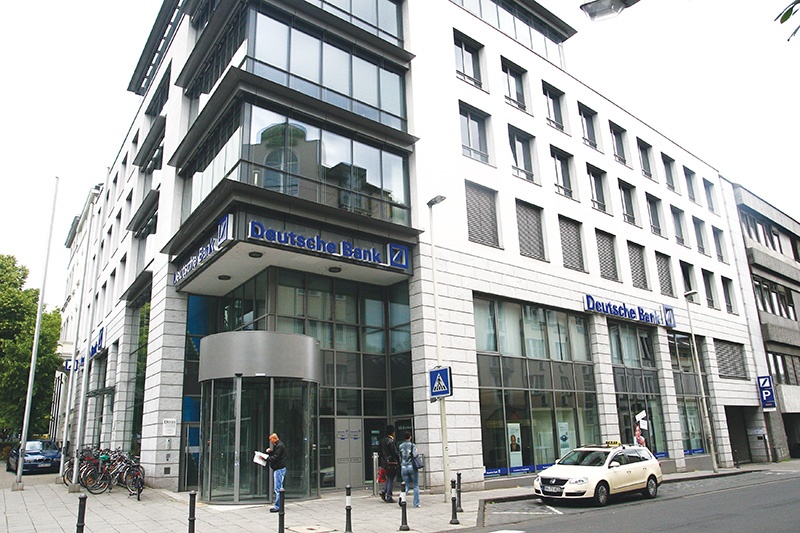Digital demand leads to German presence
 |
| Deutsche Bank this summer unveiled new post-trading features for offshore corporates. Photo: Thanh Tung |
Berlin-headquartered software-as-a-service banking platform Mambu last month partnered up with two Vietnamese digital banks, Timo and Cake – a collaboration between Be Group and VPBank – to leverage the benefits of a cloud-native core banking platform to significantly scale their tech-driven services.
The banking technology vendor became the first German unicorn in 2021. Mambu targets to accelerate its mission to make banking better for a billion people around the world, simplify the way financial products are built and serviced, and address one of the largest, most complex global market opportunities that is still in its infancy, of cloud usage.
Mambu’s general manager in Vietnam Pham Quang Minh said, “What we are seeing in Vietnam, in particular, is that increasing demand for online and mobile banking services from consumers is driving the digital transformation of banks.”
“There has also been a huge increase in the country in terms of a huge appetite for e-wallets, payments via smartphones and QR codes, and increasing demand for buy now, pay later models, particularly amongst those segments of the population that remain unbanked or underbanked,” Minh added.
“Vietnam’s consumers are demanding digital financial solutions and our industry is rising to the challenge, with banks like Timo, TNEX, and Cake at the cutting edge of digital banking gaining attention around the world. This is an exciting time for Vietnam. Those banks that are reluctant to take a digital leap risk becoming extinct,” he emphasised.
Besides the digitally advanced Mambu, other traditional financial institutions have remained steadfast in Vietnam’s financial market, whilst the European Central Bank would maintain its stimulus in the form of ultra-low interest rates to blunt the economic impact of the prolonged pandemic.
In June, German Investment Corporation (DEG), the leading European financial institution under German state-owned development bank KfW, began to cooperate with HDBank to open a German desk in Vietnam, its seventh worldwide.
With this cooperation, HDBank became the first bank in this country to open specialised services for German businesses in the country. It is the third specialised service for foreign businesses after the Japanese, Chinese, and Taiwanese equivalents.
Last year, HDBank issued convertible bonds worth $30 million to DEG. HDBank’s success in mobilising long-term capital from major institutions in the world such as DEG has reaffirmed its brand value and reputation in the international market.
Along with the prospects of Vietnam’s banking industry, HDBank is a leading prestigious brand with a strong and sustainable development capacity that meets the expectations of domestic and foreign investors.
At the same time, DEG and HDBank will strategically work together to develop products, services, and finance packages for German businesses in Vietnam as well as Vietnamese exporters to Germany and Europe.
On its website, KfW states that with a new socioeconomic development strategy which promotes a sustainable growth strategy, Vietnam’s government wants to achieve further progress in relation to the economy, social issues, and the environment over this decade. From 2013 onwards, KfW’s bilateral development cooperation with Vietnam has been based on the Vietnamese approach to promoting a green growth strategy.
Some of KfW’s involvement in Vietnamese projects include sustainable development and measures to adapt to climate change, such as its efficient power grids in small- and medium-sized cities, or its promotion of sustainable forest management and biodiversity.
However, regarding its assistance with Ho Chi Minh City’s Metro Line 2, challenges still colour the landscape. KfW’s loan for the metro line is worth approximately $313 million. Notwithstanding, due to the slow infrastructure process, KfW only agreed to “extend the disbursement period of non-refundable official development assistance until December 30, 2026,” the bank said in its dispatch to the Ministry of Finance (MoF) in early August.
Meanwhile, Deutsche Bank ramped up its presence in enabling offshore institutions and corporates to better manage their exposures to Vietnam’s currency by launching new features in June for post-trade activities on its foreign-exchange platform Autobahn.
“Under new regulations, foreign institutions and corporations now have more tools to hedge their exposure to local currency fluctuations,” said Deutsche Bank chief country officer Huynh Buu Quang. “These changes are a positive step towards deepening foreign participation in Vietnam’s fixed income markets, and help facilitate the growing volume of foreign investment into the country.”
State-owned lender VietinBank is the first and only Vietnamese bank in Europe with two branches in Frankfurt and Berlin.
What the stars mean:
★ Poor ★ ★ Promising ★★★ Good ★★★★ Very good ★★★★★ Exceptional
 Tag:
Tag:
Related Contents
Latest News
More News
- Cashless payments hit 28 times GDP in 2025 (February 04, 2026 | 18:09)
- SSIAM and DBJ launch Japan Vietnam Capital Fund (February 04, 2026 | 15:57)
- Banks target stronger profits, credit growth in 2026 (February 04, 2026 | 15:43)
- Vietnam on path to investment-grade rating (February 03, 2026 | 13:07)
- Consumer finance sector posts sharp profit growth (February 03, 2026 | 13:05)
- Insurance market building the next chapter of protection (February 02, 2026 | 11:16)
- NAB Innovation Centre underscores Vietnam’s appeal for tech investment (January 30, 2026 | 11:16)
- Vietnam strengthens public debt management with World Bank and IMF (January 30, 2026 | 11:00)
- Corporate bond market poised for stronger growth cycle (January 28, 2026 | 17:13)
- Vietnam's IPO market on recovery trajectory (January 28, 2026 | 17:04)






















 Mobile Version
Mobile Version